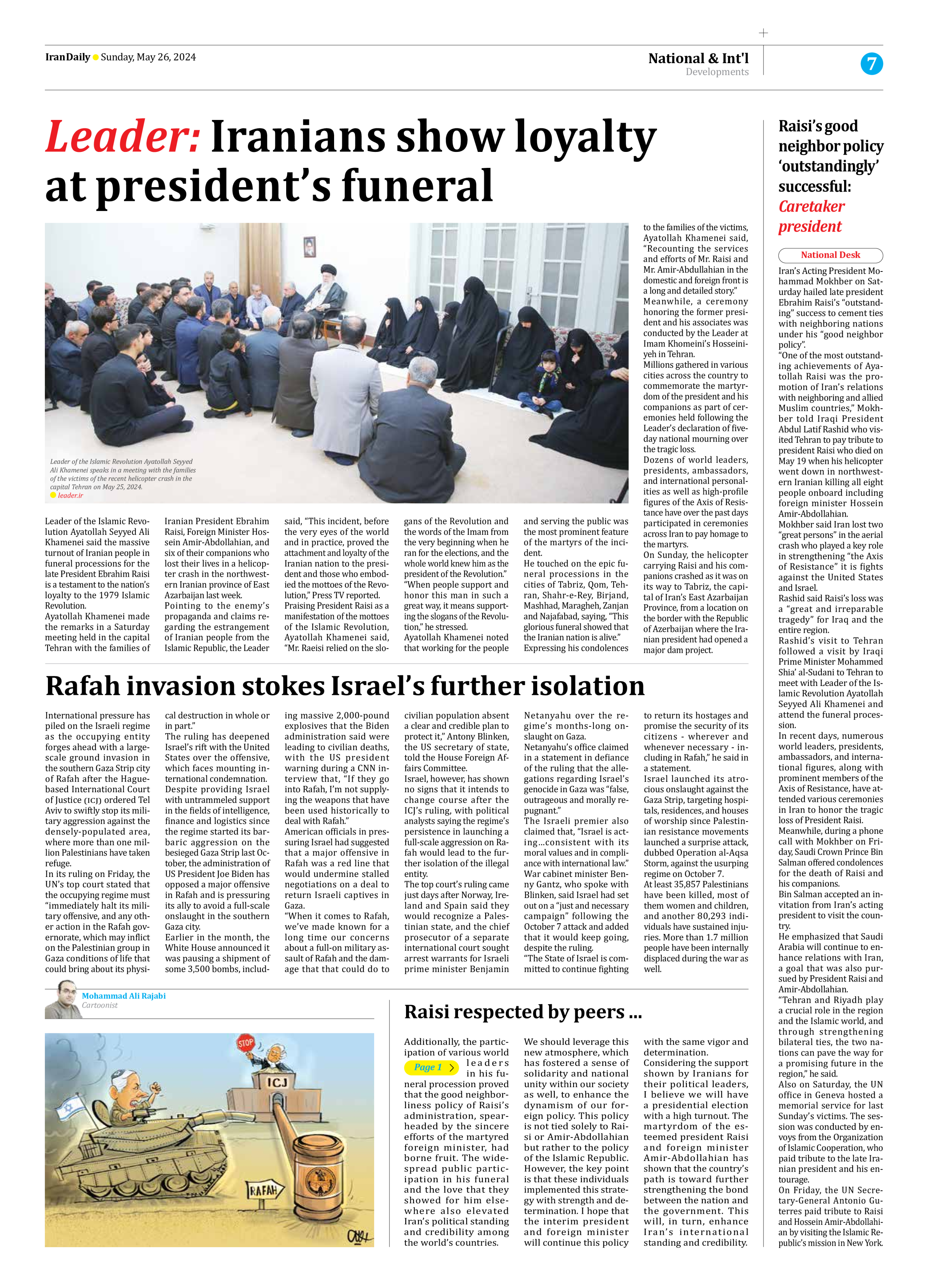
Rafah invasion stokes Israel’s further isolation
International pressure has piled on the Israeli regime as the occupying entity forges ahead with a large-scale ground invasion in the southern Gaza Strip city of Rafah after the Hague-based International Court of Justice (ICJ) ordered Tel Aviv to swiftly stop its military aggression against the densely-populated area, where more than one million Palestinians have taken refuge.
In its ruling on Friday, the UN’s top court stated that the occupying regime must “immediately halt its military offensive, and any other action in the Rafah governorate, which may inflict on the Palestinian group in Gaza conditions of life that could bring about its physical destruction in whole or in part.”
The ruling has deepened Israel’s rift with the United States over the offensive, which faces mounting international condemnation.
Despite providing Israel with untrammeled support in the fields of intelligence, finance and logistics since the regime started its barbaric aggression on the besieged Gaza Strip last October, the administration of US President Joe Biden has opposed a major offensive in Rafah and is pressuring its ally to avoid a full-scale onslaught in the southern Gaza city.
Earlier in the month, the White House announced it was pausing a shipment of some 3,500 bombs, including massive 2,000-pound explosives that the Biden administration said were leading to civilian deaths, with the US president warning during a CNN interview that, “If they go into Rafah, I’m not supplying the weapons that have been used historically to deal with Rafah.”
American officials in pressuring Israel had suggested that a major offensive in Rafah was a red line that would undermine stalled negotiations on a deal to return Israeli captives in Gaza.
“When it comes to Rafah, we’ve made known for a long time our concerns about a full-on military assault of Rafah and the damage that that could do to civilian population absent a clear and credible plan to protect it,” Antony Blinken, the US secretary of state, told the House Foreign Affairs Committee.
Israel, however, has shown no signs that it intends to change course after the ICJ’s ruling, with political analysts saying the regime’s persistence in launching a full-scale aggression on Rafah would lead to the further isolation of the illegal entity.
The top court’s ruling came just days after Norway, Ireland and Spain said they would recognize a Palestinian state, and the chief prosecutor of a separate international court sought arrest warrants for Israeli prime minister Benjamin Netanyahu over the regime’s months-long onslaught on Gaza.
Netanyahu’s office claimed in a statement in defiance of the ruling that the allegations regarding Israel’s genocide in Gaza was “false, outrageous and morally repugnant.”
The Israeli premier also claimed that, “Israel is acting…consistent with its moral values and in compliance with international law.”
War cabinet minister Benny Gantz, who spoke with Blinken, said Israel had set out on a “just and necessary campaign” following the October 7 attack and added that it would keep going, despite the ruling.
“The State of Israel is committed to continue fighting to return its hostages and promise the security of its citizens - wherever and whenever necessary - including in Rafah,” he said in a statement.
Israel launched its atrocious onslaught against the Gaza Strip, targeting hospitals, residences, and houses of worship since Palestinian resistance movements launched a surprise attack, dubbed Operation al-Aqsa Storm, against the usurping regime on October 7.
At least 35,857 Palestinians have been killed, most of them women and children, and another 80,293 individuals have sustained injuries. More than 1.7 million people have been internally displaced during the war as well.







